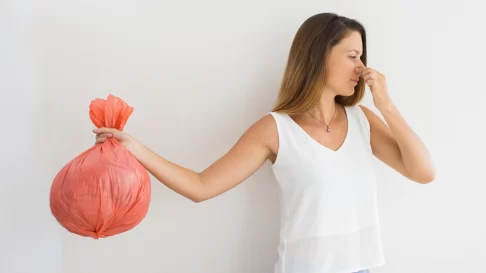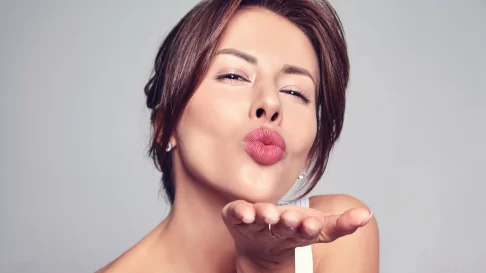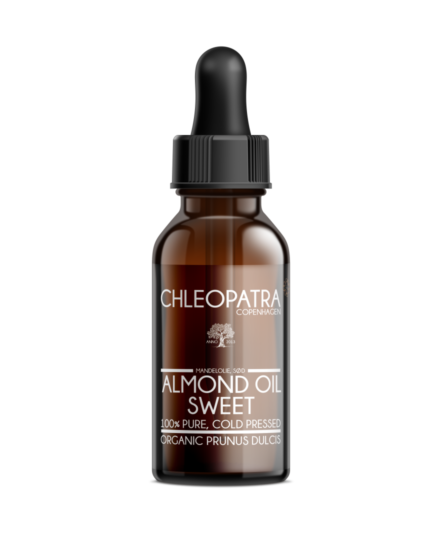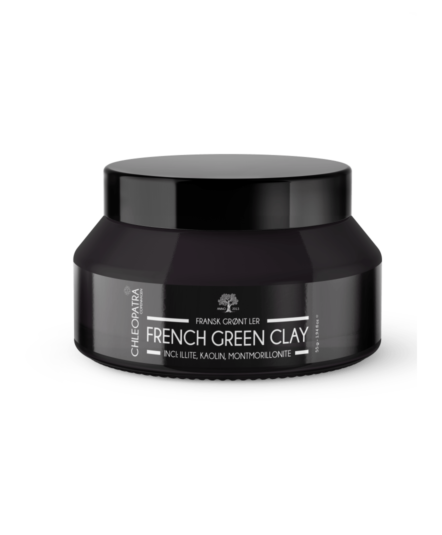EAre parabens dangerous to your health?
This article was originally written more than five years ago, but is as relevant today as it was then. The topic of parabens is up for debate again and again.
More and more paraben-free products continue to surface, and perhaps with good reason.
Parabens are still used, albeit to a lesser extent, in pharmaceuticals, food and many cosmetic products ranging from shampoos, lotions and mascara, deodorants, shaver gel and even in toothpaste.
But is it dangerous, is it endocrine disrupting and should you check your shampoo for parabens in the ingredients list?
[lepopup slug='optin-guides-tips']Parabens are suspected endocrine disruptors
You'll find parabens in various skincare products, including skin creams.
Some parabens have already been banned in personal care products. For example, isobutylparaben and isopropylparaben, while butylparaben and propylparaben are only banned in products for children in Denmark.
Parabens that are legal in Denmark - up to 0.4% concentration - are Methylparaben and Ethylparaben.
Tests have shown that parabens can be endocrine disruptors. Studies show that parabens can mimic the activity of the female sex hormone oestrogen.
At the same time, it also suggests that parabens may reduce the effect of the male sex hormone antiandrogenic effect.
This makes parabens problematic.
Recommended natural products for skin, hair and body
Vegetable oils
Skincare kits
Mineral Clay
Vegetable oils
Mineral Clay
Essential Oils
Essential Oils
Vegetable oils
What are parabens?
Parabens are a chemical compound of para-hydroxybenzoic acid and are used as preservatives. They are used to fight bacteria and fungiare widely available and cost very little to make and use.
That's why they are found in so many products. Almost all parabens used as preservatives are man-made and not naturally occurring.
Naturally occurring has been found in blueberries.
Parabens are the most commonly used preservatives in personal care products; they stop fungi, bacteria and other microorganisms from growing in your favourite creams and makeup, especially in moist, warm environments like a bathroom.
Parabens have been used for more than 70 years.
So why panic?
Various studies have previously shown that parabens in the amount we normally ingest and put on our bodies have not been a cause for concern. However, the latest research results are usually from individual products and not as an overall impression of all the products we use in the course of a normal day, year after year.
It may therefore seem that the tests that have been carried out in the past are not quite enough.
A Danish study has shown that there is cause for concern. The test showed that parabens could be detected in the blood and urine of healthy young male volunteers a few hours after paraben-containing lotions were applied to their skin.
The authors concluded that since the chemicals could be absorbed, metabolised and excreted, they could also potentially contribute to adverse health effects.
We don't know yet - but here's what the concern is
Some of the questions that have since been asked is whether the rising incidence of breast cancer we are seeing - partly linked to the fact that parabens, which have a weak ability to mimic oestrogen and have just been found in breast cancer tumours and can be isolated from other body tissues - could be the cause?
Are declining sperm counts and increasing rates of male breast cancer and testicular cancer related to the fact that these chemicals can be absorbed into our skin and potentially disrupt our endocrine systems?
No one knows for sure - for now, it's speculation. However, animal studies have shown that it can be an endocrine disruptor.
Stay vigilant and stay calm
Since we can't say anything for sure yet, there's no need to panic, right?
There may well be something to this, but conversely, we have also seen science suddenly discover why a large number of diseases develop and thrive in humans due to some previously approved and accepted chemical.
We might as well turn the tables and try to avoid anything that could potentially be dangerous to us in advance. If, in the near future, parabens are shown to have an impact on people's ability to pass on generations or a much higher risk of breast cancer, we might as well not ingest and apply parabens to our bodies in the first place.
Alternative to parabens
There are natural and other synthetic alternatives to parabens - including using oils and extracts from plants or more benign chemicals.
Oils, vitamins and herbs
Essential oils, extracts, vitamins and herbs are natural preservatives that ward off bacteria. They don't have the toxicity of synthetic preservatives, but they remain effective.
However, they are intended to be used short-term, for those who use a product quickly.
Most oils and extracts degrade relatively quickly and can only be used for a maximum of one year.
One downside of essential oils and vitamins is that they need to be used in high concentrations to preserve a product. This will often be more expensive.
Sodium benzoate
Sodium benzoate is found in products other than personal care. It is an ingredient in salad dressings, jams, sauces and carbonated drinks.
It is known as a preservative that is 100 per cent natural, has no side effects and is not expensive to produce.
Sodium benzoate occurs naturally in fruits and roots in nature. Cranberries, prunes, greengage plums, cinnamon, cloves and apples all contain sodium benzoate.
Ethylhexylglycerol
Ethylhexylglycerin is a synthetic compound that comes from grains and plants.
It breaks down the cell walls of microorganisms and actually kills them.
Ethylhexylglycerin is known to be a safe alternative to parabens. However, it has the disadvantage of being a skin irritant.
Two studies, one in Belgium by the Department of Dermatology at the University Hospital and one in the contact dermatitis journal, have found a higher incidence of skin irritation when using Ethylhexylglycerin.
Phenoxyethanol
Phenoxyethanol is derived from ether alcohol. It is a synthetic compound that has been accepted as an alternative to parabens, although somewhat controversial.
It is a potent preservative and not expensive to produce, but it is believed to contain carcinogenic chemicals.
However, the U.S. Food and Drug Administration has approved the compound as a food additive as well as for cosmetic use.
CHLEOPATRA's products are 100% FREE of parabens
Chleopatra recommends that you always check the ingredients labelling of your cosmetics (and indeed food and medicines) to see if they contain parabens. Try to avoid them as much as possible.
You can find them by looking for words in the product list that end with -paraben.
In food, you should also avoid products containing: E214, E215, E218 and E219 - which are particularly used in sweets and snacks, such as treated nuts and crisps etc.
None of our products contain parabens or any other preservatives for that matter. Only our natural oils contains natural preservatives in the form of vitamins.
[lepopup slug='optin-guides-tips']Conclusion
We don't know exactly what effects parabens have on the body and the sex hormone balance, but after what you've just read, there's no need to play with fire, right?
It's not easy to deal with certain types of products without preservatives. They just run the risk of being filled with bacteria and getting mould.
Conversely, there's no such thing as a one-size-fits-all remedy. Pure oils and vitamins can be great and are completely natural and without side effects. However, you need to use more, which makes the product more expensive. But it's pure and you don't need synthetic products.
Other products also work well, but may be carcinogenic or irritating to the skin. So which do you choose?
We know what we choose. Oils and vitamins - and we just make sure we use the product before it grows mould.

































Recommended natural products for skin, hair and body
Natural Raw Materials
Shea Butter (Shea Butter)
Essential Oils
Organic Grapefruit Oil 10 ml Essential Oil - Chleopatra
Essential Oils
Organic Tea Tree Oil 10 ml Essential Oil - Chleopatra
Vegetable oils
Organic Baobab Oil 100ml - Chleopatra
Vegetable oils
Organic Pumpkin Seed Oil 30ml - Chleopatra
Vegetable oils
Organic Rosehip Seed Oil 30ml - Chleopatra
Flower water
Rose water 100ml - Flower water
Essential Oils
Organic Frankincense Oil 10 ml Essential Oil - Chleopatra